Sweet Corn (Makkai): Uses, Benefits, Side Effects and More!
By Dr Anuja Bodhare +2 more

Get,

to manage your symptom
Get your,


4 Cr+ families
benefitted

OTP sent to 9988776655



You’ve successfully subscribed to receive
doctor-approved tips on
Whatsapp

Get ready to feel your best.

Hi There,
Download the PharmEasy App now!!


Register to Avail the Offer
Send OTPBy continuing, you agree with our Privacy Policy and Terms and Conditions

Hi There,
Sign up on PharmEasy now!!
Trusted by 4 crore+ families

OTP sent to 9988776655



You have unlocked 25% off on medicines




Code: NU25
By Dr Anuja Bodhare +2 more
Table of Contents
A steaming cup of boiled sweet corn or sweet corn roasted over charcoal seems to be the perfect fit for a long drive on a rainy day. As much as it is delicious, it may be healthy too! Sweet corn is popular worldwide for its unique taste, sweetness, and pleasant flavour. It is hybridised form of maize and is also known as sugar corn. Scientifically, it is called Zeamays (L.) var. saccharata1.
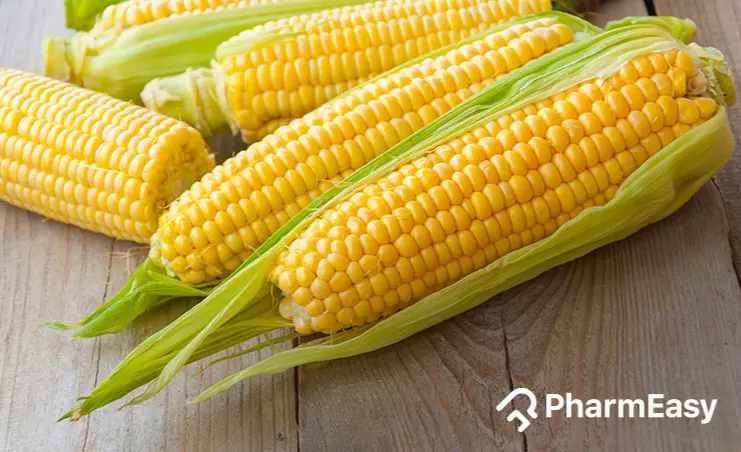
If you are health-conscious, you’ll be happy to know that this tasty vegetable is part of the new age super diet. It is now being widely used in the culinary world for making salads, pizza toppings, making sugar syrups, etc1. In the following sections, let’s find out about sweet corn’s potential uses and side effects in detail.
The nutrients present in sweet corn and their percentage content are as follows:
Other minerals: iron, zinc, copper, manganese and selenium
Vitamins: vitamin C, vitamin B1 (thiamine), vitamin B2 (riboflavin), vitamin B3 (niacin), pantothenic acid, vitamin B6, folate and vitamin A2
Also Read: Drumstick: Uses, Benefits, Side Effects and More!
Sweet corn contains a lot of bioactive components due to which it might have the following properties:
In my experience, sweet corn is a tasty treat to support your nerves, brain, heart, and cholesterol levels. It is packed with B vitamins, including niacin and thiamine. Thiamine might support nerve health and cognitive function, while niacin may reduce the risk of cardiovascular issues and promote good cholesterol1.
Dr. Smita Barode, B.A.M.S, M.S.
Sweet corn may benefit your health in many ways due to the multiple vitamins and minerals that it contains. The potential uses of sweet corn are explained below in detail.
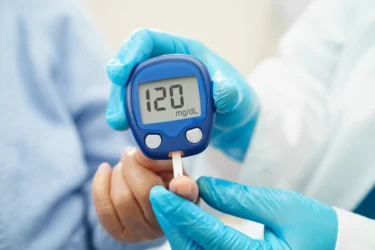
Corn has resistant starch, which might help lower blood sugar levels in people with type 2 diabetes. In a study, it was seen that resistant starch might be beneficial for rising blood sugar after eating food and insulin levels3. This might be because sweet corn gets absorbed slowly, thus stabilising the sugar in the blood1. Therefore, control of blood sugar in diabetes might be one of the advantages of sweet corn.
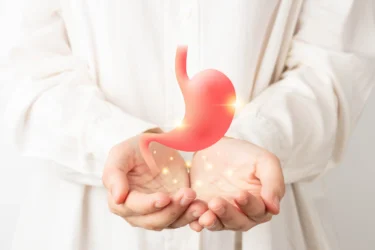
Resistant starch is present in corn, which is a form of fibre that doesn’t get dissolved (or digested) easily. Thus, eating corn may be beneficial as it helps uptake minerals, might act as a prebiotic (might increase good bacteria that help in digestion), might aid bulking of stools and its easy passing. It might also be helpful in alleviating the symptoms of diarrhoea3. Therefore, eating sweet corn may prove to be advantageous for stomach-related problems.

A large study3 conducted on nurses in the US showed that adopting a fibre-rich diet containing more whole grains, especially corn, may help maintain an optimum weight. Moreover, it was observed that fat accumulation decreased when carbohydrates in the diet were replaced with resistant starch (present in corn). This may indicate its benefit in losing weight. Thus, it can be said that sweet corn might be valuable for weight loss.

Corn starch is applied to the skin so that it might soothe rashes and skin irritation. It may also be used in various cosmetic products found on the market. It may be used as a replacement for toxic substances that can potentially cause cancer (carcinogenic substances) in petroleum products1. Therefore, it may be regarded as one of the benefits of sweet corn for the skin. You can use sweet corn for skin by making a fine paste of it, mixing it with curd or honey and applying it to the irritated skin areas. Being rich in antioxidants (it might neutralise free radicals), sweet corn might help prevent ageing and maintain the youthful glow of the skin. Thus, sweet corn might act as an anti-ageing agent, another way in which sweet corn might benefit the skin. Therefore, sweet corn might prove to be beneficial for people wanting to maintain youthful skin1.
I would say that corn is not just a tasty treat, but also a fantastic source of health-boosting compounds. One such compound is ferulic acid. Research studies suggest that ferulic acid might play a vital role against cancer, fighting the effects of ageing, and reducing inflammation in our bodies1.
Dr. Rajeev Singh, BAMS
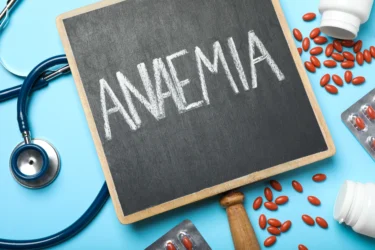
Sweet corn is a good natural source of iron which might help form blood cells. Thus, it may help manage anaemia. It also contains folic acid and niacin, which are important for forming blood cells. In addition, folic acid and vitamin B12 may prevent the development of anaemia resulting from vitamin deficiency. Overall, sweet corn may be beneficial in managing anaemia1.
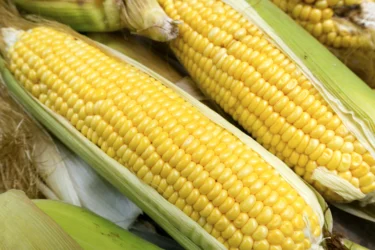
Sweet corn may also benefit our health in the following ways:
Though there are studies that show the benefits of sweet corn in various conditions, these are insufficient, and there is a need for further studies to establish the true extent of the benefits of sweet corn on human health.
I will tell you a little secret about cooked sweet corn! Cooking sweet corn might actually boost its health benefits. It’s true! When cooked, sweet corn’s antioxidant activity skyrockets, offering greater protection against cancer, heart disease, and cataract1.
Dr. Siddharth Gupta, B.A.M.S, M.D (Ayu)
Sweet corn is a vegetable and may be eaten in many ways.
You can eat it in any way that you prefer. However, consuming anything in excess can be harmful, so be mindful of how much sweet corn is being taken1. You must consult a qualified doctor before taking any herbal supplements. Do not discontinue or replace an ongoing treatment of modern medicine with an Ayurvedic/herbal preparation without consulting a qualified doctor.
Also Read: Brinjal: Uses, Benefits, Side Effects and More!
There are no sufficient documented reports to indicate the side effects of sweet corn. As sweet corn is a vegetable, it may be consumed safely in moderate quantities. However, if you have a known allergy to sweet corn, you should avoid it. If you notice any symptoms after eating sweet corn, then you should consult a doctor and get it clarified.
I would recommend sweet corn for people with gluten intolerance. The good news is that sweet corn is naturally gluten-free and might offer a better alternative to other grains4.
Dr. Anuja Bodhare, B.A.M.S, M.D (Ayu)
There are no specific precautions to be taken for eating sweet corn. However, you should be mindful of the quality and freshness of the sweet corn and whether it is spoilt or not. Avoid eating spoilt sweet corn, as spoilt food may harm your health.
I would recommend sweet corn as a fantastic post-workout snack. Sweet corn is loaded with carbohydrates, which give our bodies and minds the energy they need to function at their best. It is like an energy powerhouse4.
Dr. Ashok Pal, BAMS
There are no specific known drug interactions of sweet corn reported. However, suppose you are receiving treatment for any condition or are on any medication, discuss with your doctor if you can eat sweet corn as some medicines might react with sweet corn. Ensure that it’s safe for you to eat sweet corn before consuming it.
Also Read: Potato: Uses, Benefits, Side Effects and More!
Sweet corn’s health benefits may be due to the presence of various vitamins and minerals in it. Sweet corn may be valuable for lowering blood sugar, weight loss, attaining youthful skin, etc1.
Sweet corn has beta carotene in it, which transforms into Vitamin A, which might be good for the eyes. It might help in improving eyesight1.
There is no evidence stating the benefits of eating boiled sweet corn for hair.
As seen in several studies, sweet corn might reduce fat accumulation in the body. This may benefit weight loss1.
There are no specific side effects of sweet corn reported. However, if you develop any symptoms after eating sweet corn, you should immediately visit a doctor as it can indicate an allergic reaction.
There are not sufficient scientific studies that report the benefits of sweet corn for ear pain. However, there is inadequate information regarding this, and there is a need for further studies in this area.
Sweet corn may be valuable for the skin, managing anaemia, blood sugar, maintenance of optimum body weight, eyesight, and diseases affecting the nerve cells (like Alzheimer’s disease) and might help in the production of good cholesterol. It may be regarded as a new age super diet. However, its health benefits are not completely explored. There is a need for further studies on sweet corn to know its benefits in detail1,3.
Also Read: Green Chilli: Uses, Benefits, Side Effects and More!
Disclaimer: The information provided here is for educational/awareness purposes only and is not intended to be a substitute for medical treatment by a healthcare professional and should not be relied upon to diagnose or treat any medical condition. The reader should consult a registered medical practitioner to determine the appropriateness of the information and before consuming any medication. PharmEasy does not provide any guarantee or warranty (express or implied) regarding the accuracy, adequacy, completeness, legality, reliability or usefulness of the information; and disclaims any liability arising thereof.
Links and product recommendations in the information provided here are advertisements of third-party products available on the website. PharmEasy does not make any representation on the accuracy or suitability of such products/services. Advertisements do not influence the editorial decisions or content. The information in this blog is subject to change without notice. The authors and administrators reserve the right to modify, add, or remove content without notification. It is your responsibility to review this disclaimer regularly for any changes.
Comments

Leave your comment...
You may also like
Comments